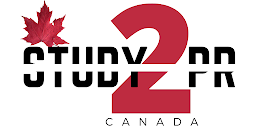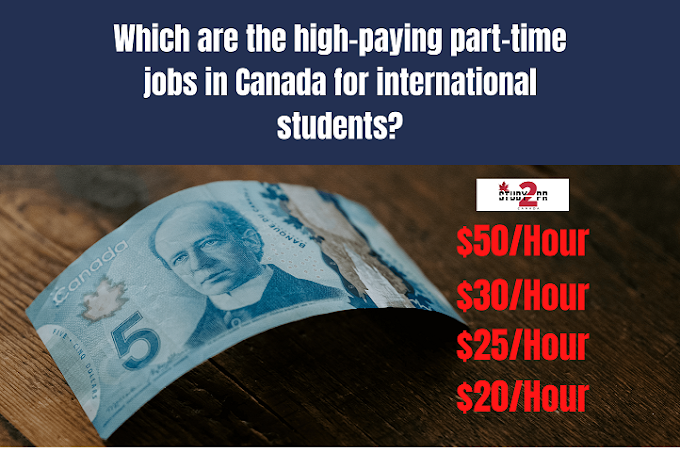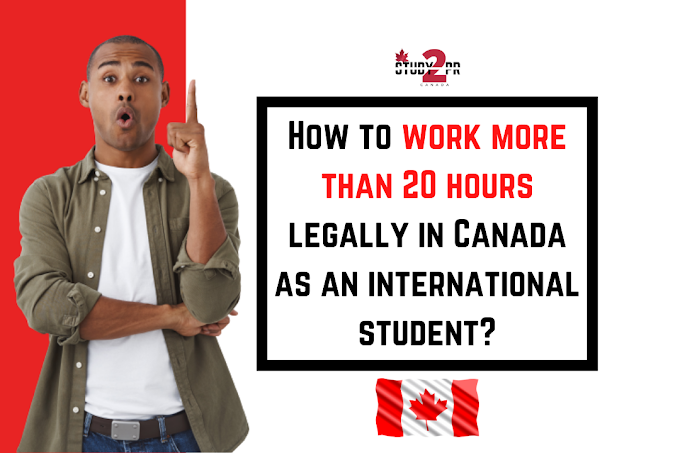Which intake is best for you to study in Canada? - Everything you need to know
You are willing to secure admission in Canada and have gone through hundreds of web pages to get to know every bit of winning admission. Probably, you might have missed understanding intakes with the proper information. This article will clear your confusion, and by the end, you will know everything about intakes in Canada.
Before going into depth, you should know how different intakes impact securing admission and the overall process?
Yes, of course, it does affect. So, it's a thing that you really should be aware of.
How many intakes are in a Year?
You might be wondering what Intake is actually. You should know its basics; it's a specific period when a college or a university invites students for admissions in various courses. So, Canadian colleges welcome new aspirants three times a year.
These three intakes are summer, winter, and fall. As they are named with the seasons, new applications are invited in every new season in a year. We will discuss each Intake individually and will see how they are different from each other.
Fall Intake
Fall intake is also known as September intake, as it starts in September and ends in December. This Intake is the most primary Intake for all Canadian universities, which means most institutes welcome new applicants for all their courses. Since it's a considerable opportunity period, international institutes seek it.
However, its period is from September to December, but still, every University has its deadlines. Some offer even before September, so it's recommended to check desired University's date.
If you are planning to come to Canada then September intake is the most considered intake. Here below you will get to know some information about the intake which most of the students realize very late.
Pros:
- In Canada, all Universities mostly provide every course in September intake.
- Airtickets rates are cheap as compared to January intake because it's Canadians vacation time because of Christmas and New year's time so air transit works at a very high pace. Due to this scenario air tickets fairs get raised.
- You will get part-time jobs after a little struggle because the whole market used to work very efficiently unlike the January intake due to the winter season.
- You will get the greatest accommodation options at a cheap rate (maybe) because some students after completing their studies they use to move to their desired city to look for field jobs.
- You will get adjusted to the Canadian climate and atmosphere. And will be prepared for the extreme cold of Canada.
- You will get different offers on Black Friday to buy things at cheap rates. Usually, black Friday uses to get celebrated on the last Friday of November. Students tend to buy electronics like mobile phones, laptops, tablets, etc. which required them in their study. Else its good time to buy some necessary things which need to be there in the room like blankets, mattress, computer setups, etc.
- Due to the demand of the intake supply of students is more. Hence, an increase in competition.
- A lot of students you will see wandering here and there to drop their resumes at different stores for a part-time job.
- A lot of students enter university, similarly, all the students pass out at the same time and the market gets saturated for full-time jobs. That doesn't mean you won't get a job. It's like you will hassle to secure your core field full-time job.
Winter Intake
As fall intake finishes, winter starts just like the season. It begins in January and ends in April. This Intake is considered primary, so not all universities offer admission during the period, but still, you will get many chances.
Pros:
- Primary intake for universities, They provide most of the courses to the students.
- Due to fewer students inflow in the intake, you get time to find jobs after within 2-3 months suddenly after opening the utter market.
- You can experience snowfall just after reaching Canada.
- You will find a great discount on winter wears like winter jackets, snowshoes.
- You will pass out in April month next year if you have a 16-month course, then you will get ample time to apply for your core field full-time jobs because saturation is less and markets just start to get on track after winter.
Cons:
- Not much is popular among students.
- Some courses colleges and universities takedown.
- Air tickets fair is more because of Christmas and New year.
- Sudden climate change affects students' psychology. To elaborate this, In winter sunrise starts at around 6 am and sunset starts at around 4 pm. People cant go out due to extreme cold unless they have a car. Due to this some of the students feel homesick and depressed etc.
- If your accommodation is not fixed before coming to Canada. It can be big trouble due to minus-degree temperature.
- You might need to walk into the stores to buy your daily routine stuff because due to snow government some routes makes disable for bus and bus to ride due to safety issues.
What are the difficulties international students face in Canada?
What to choose University or College in Canada?
Which are the high-paying part-time jobs in Canada for international students?
Summer Intake
In Canada, summer intake or Spring intake comes at the last of all, and it has not much importance regarding the arrival of international students. Another important thing is that the Summer semester is a holiday for students. However, you can still grab the chance to secure your admission.
Pros:
- Most universities provide all courses to the students.
- The market is open and on track for jobs. Can find part jobs easily within 1-2 months.
- University does extra curriculum for students because it's summer.
- You will pass out in September, so full-time jobs can get early.
- Great accommodations options.
- You can explore Canada in the summer.
- Outdoor sports are available to play in recreational places.
- Less air ticket fair due to nonseasonal travel.
Cons:
Not every course is available in May intake. If missed then need to wait for 1 year for a particular course.
Which Intake you Should Take
Here comes the critical question for which you are looking. Since all three intakes are clear to you, now it's easy to decide for you. Still, many aspects affect while choosing the Intake.
Everything is based on your conditions. One of the first things that you need to know is that universities prefer fall intake and the primary one. Suppose you are looking to secure admission to any top Canadian university. In that case, you should not miss fall intake due to the availability of more universities, your chance to get a seat increases. Therefore, giving this priority is the best thing.
Apart from these all conditions, the weather is perfect in this period. During the fall, you get much time to adjust yourself to the environment and overall weather conditions when you arrive in Canada.
If you miss the fall intake, you don't need to worry or wait for a whole year, as right after fall intake, winter admission opening comes. Most of the students, who miss the first one, prefer this Intake. However, not many universities welcome students, but still, you can get a chance.
For a better choice, you should check whether your desired University offers courses in winter intake or not. Since not every institute is open for admissions, you should not risk your studies. Another thing you should keep in mind is that winter gets severe during this period time in Canada, so you should be well prepared for it.
Here comes the last Intake, the summer intake. It is the last option to secure admission to your dream country, but unluckily few institutes offer admission during the summer intake. If you, by chance, miss the first two ones, then it gets difficult for you, and in this condition, you will have to wait a whole year to get admission to your desired University. Altogether, the best options are fall and winter intake, so you should try to prepare for them.
Final words
To know each Intake in detail, you must have an idea now which one you should choose. Selecting Intake is not much important, but securing is. The thing that matters is how much you are prepared for the admissions. These are just periods when you go through the admission process, but your struggles should start before the intakes. When all your preparations are done, then Intake's matter comes.
From bank work to the cracking required test, you have got many things to do. The first step that you should go with is to decide on the University. While it's essential to get familiar with the University's admission process, you should visit its website or contact it if you have any queries. When you know dues and dates, you should go for the second step, the standardized test.
Of course, you need SAT, TOEFL, or ILETS test to secure admission to Canadian Universities. So, go for the test before you miss any intake. When you are done with the test, it's time for the admission process. Remember that you should have multiple universities on your list. In this way, if your application gets rejected, you will have other options. Suppose you are applying for a master's program. In that case, you should keep contacting the professors to get a reference list, and honestly, it's easier to get a reference letter for Canadian University. Overall, you can secure admission without hassles and struggles, but you need to follow proper guidelines.
Which intake is best for you to study in Canada? - Everything you need to know





0 Comments